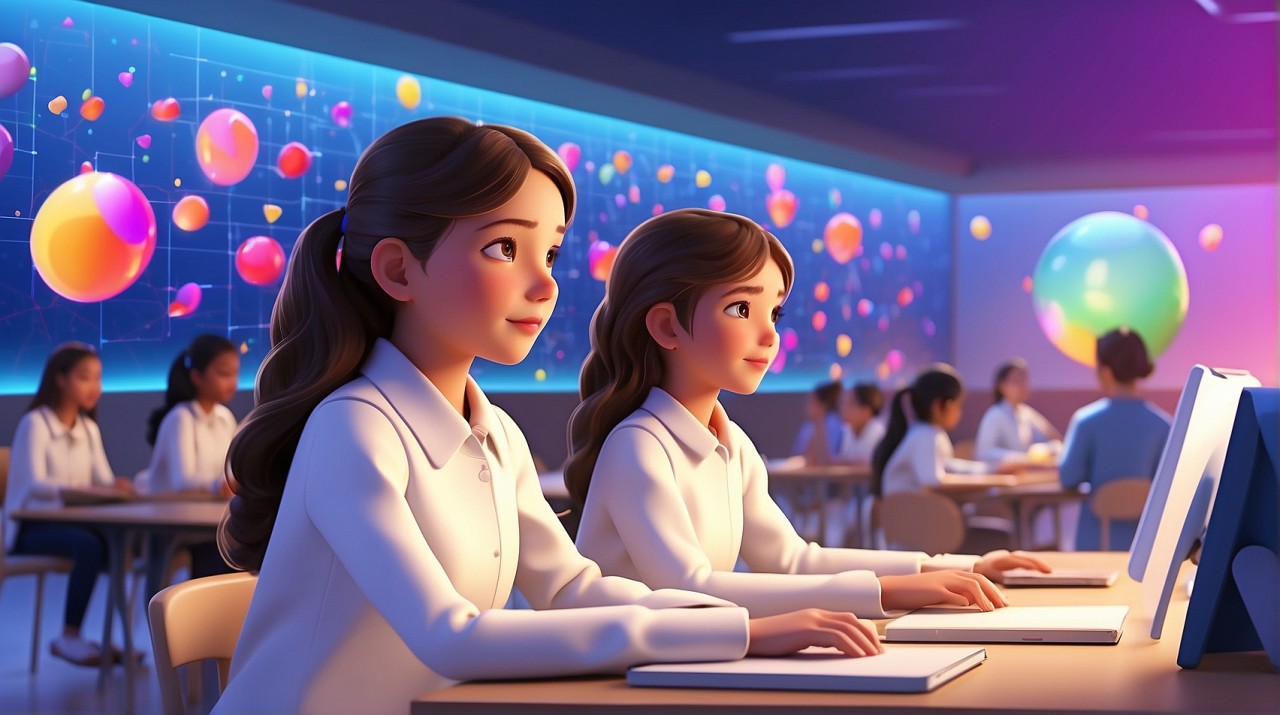Imagine entering a classroom where the walls serve as a portal to a world of personalized learning experiences. Here, every student embarks on an educational journey uniquely crafted to their individual needs, interests, and pace. Welcome to the era of personalized learning—a revolutionary approach that transforms the traditional one-size-fits-all model into a dynamic, student-centered adventure. In this new educational landscape, technology acts as a personal guide, curating lessons, assessments, and feedback in real-time, turning every classroom into a bespoke learning environment. Rather than following a rigid curriculum, students navigate a customized educational path that adapts as they grow, learn, and excel.
With personalized learning, the days of generic textbooks and uniform lesson plans are giving way to a more intuitive and engaging approach. Imagine a student who loves history and struggles with math. Instead of being stuck in a static system, this student receives enriched historical content and additional math support tailored to their specific challenges. This transformation is not just about making learning more enjoyable but about optimizing educational outcomes, ensuring that each student’s journey is as effective and rewarding as possible.
Technological Wonders: Revolutionizing Education
At the heart of this educational evolution are advanced technologies like AI and machine learning, which are reshaping the way students learn and engage with educational content. These cutting-edge tools have the ability to analyze a student’s performance in real-time, providing insights that allow for the continuous adaptation of lesson plans and content to meet the unique needs of each learner. For example, if a student excels in mathematics but finds language arts challenging, the system automatically adjusts the complexity and focus of their assignments, ensuring that the learning experience is neither too easy nor too difficult. This personalized approach keeps students motivated and challenged, addressing their immediate learning needs while also guiding their long-term educational development. By optimizing the learning trajectory for each student, AI and machine learning create a more effective, individualized education that can help students reach their fullest potential, making learning more engaging and impactful.
Adaptive Learning: Tailored Experiences for Every Learner
Adaptive learning technologies take personalized education to the next level by tailoring content to each student’s unique learning profile. These systems analyze individual performance data, allowing them to customize lessons in real-time. For example, if a student shows proficiency in certain subjects, the technology automatically introduces more advanced materials to keep them engaged and challenged. Conversely, for areas where a student struggles, the system provides extra practice, targeted instruction, and resources designed to address those specific difficulties. This dynamic, responsive approach ensures that students are neither bored nor overwhelmed, but instead, move forward at a pace that suits their learning style and abilities. By continuously adjusting the level of difficulty and support, adaptive learning technologies create an optimal learning environment where each student can thrive. This individualized attention not only promotes better understanding and retention but also fosters a sense of achievement, keeping students motivated and engaged throughout their educational journey.
Empowering Students: Beyond the Standard Curriculum
Personalized learning also emphasizes student agency, allowing learners to set their own goals, choose subjects of interest, and track their progress. By integrating students’ interests and strengths into the learning process, this approach enhances engagement and motivation. When students have control over their educational journey and can see their progress, they are more invested in their learning and more likely to achieve their academic goals.
Addressing Challenges: A Vision for Equitable Education
Despite its promise, personalized learning faces challenges such as ensuring equitable access to technology and safeguarding student data privacy. Effective implementation requires substantial infrastructure and support, particularly in under-resourced schools. Addressing these challenges involves ongoing investment in technology, professional development for educators, and robust measures to protect student information.
As personalized learning continues to evolve, it has the potential to redefine education by making it more responsive, engaging, and effective. By harnessing the power of technology and focusing on individual student needs, personalized learning paves the way for a future where every student’s educational journey is uniquely tailored to unlock their fullest potential. This approach not only enhances academic outcomes but also fosters critical thinking, creativity, and a lifelong love of learning.
Aarul Malaviya is the Founder of Zamit.







